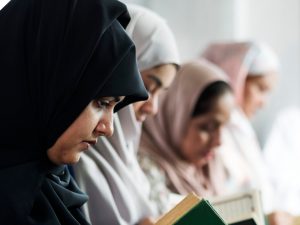
Faculty of Tarbiyah and Teacher Training – Hello, young friend! Do you know who Imam Abu Hamid al-Ghazali is? Well, he was born in Thus, Khurasan, Iran, in 450 A.H. His father? Muhammad bin Ahmad, a simple weaver. Unfortunately, there was tragedy in his family; his older brother Hamid died as a toddler.
But, do you know the 3 Advantages of Self-Introspection from Imam al-Ghazali? Al-Ghazali was a jack of all trades in the world of knowledge. From philosophy, theology, to Sufism, he mastered it all! In fact, he had a monumental work called Ihya Ulumiddin. The book is the mainstay of many people, especially students in our pesantren in the archipelago.
Here, he talks a lot about ‘muhasabah’. What is that? It’s like self-introspection. According to him, as might be taught at Alma Ata University, we need to know our strengths and weaknesses. Why? So that we can become a better person and get closer to God.
اعلم أن العبد كما [ينبغي أن] يكون له وقت في أول النهار يشارط فيه نفسه على سبيل التوصية بالحق، فينبغي أن يكون له في آخر النهار ساعة يطالب فيها النفس ويحاسبها على جميع حركاتها وسكناتها، كما يفعل التجار في الدنيا مع الشركاء في آخر كل سنة أو شهر أو يوم حرصا منهم على الدنيا، وخوفا من أن يفوتهم منها ما لو فاتهم لكانت الخيرة لهم في فواتهم
Meaning: “Know that the servant, just as he should have a time at the beginning of the day to pledge to himself to hold fast to the truth, so he should also have a time at the end of the day to demand of his soul and reckon with it for all his movements and his silence, as the merchants of the world do with their partners at the end of every year, month, or day, because of their zeal for the world, and out of fear that if they lose something from the world that if they lose it, it will be better for them if it is lost.”
… فكيف لا يحاسب العاقل نفسه فيما يتعلق به خطر الشقاوة والسعادة أبد الآباد ؟ ما هذه المساهلة إلا عن الغفلة والخذلان وقلة التوفيق نعوذ بالله من ذلك
“So how can a reasonable person not reckon with himself in matters relating to the danger of misery and happiness forever? What is this laziness but negligence, humiliation, and little guidance? We seek refuge with Allah from that.” [Sayyid Muhammad az-Zabidi, Kitab Ithafus Sadah Syarah Ihya’ Ulumiddin Volume 13 [Beirut; Dar Kutub al Ilmiyah, 1971], page 214.]
Check this out, guys 3 Advantages of Self-Introspection from Imam al-Ghazali! Listen up, Imam Ghazali says that self-introspection is not to be skipped! There are 3 cool reasons why you should be diligent in muhasabah, especially for Muslims.
Muhasabah can be a powerful tool to upgrade yourself and avoid things that make you sin.
It’s like scrolling through your Instagram feed, but it’s a version of self-introspection. Not to see other people’s highlight reels, but to review our own mistakes. Alma Ata University style. Introspection is not just a once-in-a-while ritual, it can be a daily routine that keeps us on track. In the morning, we make a commitment to ourselves, to be loyal students on this campus of life, right? Stay connected to the truth, set goals for the day. Then, in the evening, we can check ourselves, review all the actions and chill moments of the day. Find mistakes or spots that can be upgraded for tomorrow. This is all the same as the words of the Prophet Muhammad:
من كان يومه خيرا من امسه فهو رابح. ومن كان يومه مثل امسه فهو مغبون. ومن كان يومه شرا من امسه فهو ملعون.( رواه الحاكم)
Meaning: “Whoever is better today than yesterday is fortunate. Whoever today is the same as yesterday is a loser. Whoever is worse today than yesterday is cursed”. (HR. Al-Hakim).
Muhasabah is like boosting our sense of responsibility.
We become very aware of what we have to do in front of Allah, our friends, and ourselves who have followed religious rules. So, through muhasabah, we realize that life is no joke, guys. And, of course, one day we will return to Allah. All of this is very clear in Q.S. al-Hasyr [59] verse 18.
يٰٓاَيُّهَا الَّذِيْنَ اٰمَنُوا اتَّقُوا اللّٰهَ وَلْتَنْظُرْ نَفْسٌ مَّا قَدَّمَتْ لِغَدٍۚ وَاتَّقُوا اللّٰهَ ۗاِنَّ اللّٰهَ خَبِيْرٌ ۢبِمَا تَعْمَلُوْنَ
Meaning: “O you who have believed, fear Allah and let everyone consider what he has done for tomorrow (hereafter). Fear Allah. Verily, Allah is Exhaustive of what you do.”
Well loh, guys! Sheikh Nawawi from the book Marah Labid, Volume II, page 513, says that this verse invites us to always focus on the future. This means that what we do now will determine the course of our lives in the future. That’s why we need to keep doing positive things and stay away from negative ones. The point is, let’s make a better future!
يا أَيُّهَا الَّذِينَ آمَنُوا اتَّقُوا اللَّهَ في كل ما تأتون وما تذرون، وَلْتَنْظُرْ نَفْسٌ برة أو فاجرة ما قَدَّمَتْ لِغَدٍ، أي ما تريد أن تحصله ليوم القيامة فتفعله، وَاتَّقُوا اللَّهَ بأداء الواجبات وترك المعاصي، إِنَّ اللَّهَ خَبِيرٌ بِما تَعْمَلُونَ (١٨) من الخير والشر، فلا تعملون عملا إلا كان بمرأى منه تعالى، ومسمع، فاستحيوا منه تعالى.
Meaning: “O you who believe, fear Allah in all that you do and leave. Let everyone, whether righteous or wicked, be mindful of what he has prepared for tomorrow. That is, what he wants to achieve for the Day of Judgment, then do it. And fear Allah by fulfilling obligations and forsaking prohibitions. Verily, Allah is aware of what you do, both good and bad. There is not a single deed that you do except in His presence and hearing. So, be ashamed of Him.”
Muhasabah is like being a bodyguard for ourselves from the temptation of sin.
Don’t forget, in our journey of introspection, it is as if we are taking an exam at Alma Ata University. Every little step is a question that must be answered honestly. Not to make you nervous, but this is serious, you know! Introspection is not only a challenge for now, but also an investment for doomsday. So, let’s get ready like eager students on this campus of life!
استدل بذلك أرباب البصائر أن الله تعالى لهم بالمرصاد ، وأنهم سيناقشون في الحساب ، ويطالبون بمثاقيل الذر من الخطرات واللحظات ، فتحققوا أنهم لا ينجيهم من هذه الأخطار إلا لزوم المحاسبة وصدق المراقبة ومطالبة النفس في الأنفاس والحركات ، ومحاسبتها في الخطرات والحرظات
Meaning: “Thus, those who have deep understanding know that Allah swt is watching over them, and that they will be judged and held accountable for their every move and thought, even if it is as small as an atom. They realize that nothing can save them from this danger except constant introspection, completely guarding themselves from temptation, demanding of themselves in every breath and movement, and accounting for themselves in every thought and moment.”
. فمن حاسب نفسه قبل أن يحاسب خف في القيامة حسابه ، وحضر عند السؤال جوابه ، وحسن منقلبه ومآبه ، ومن لم يحاسب نفسه دامت حسراته ، وطالت في عرصات القيامة
“Whoever introspects himself before being judged, his reckoning on the Day of Judgment will be lighter, his answers will be ready when asked, and his end and return will be good. Whoever does not introspect, regret will remain with him, and he will stand for a long time on the Day of Judgment. “ [Muhammad Jamaluddin al-Qassimi, Mau’izatul Mukminin min Ihya ‘Ulumiddin, Volume I, [Beirut; dar Kutub al-Ilmiyah, 1995], page 305].
Source:
- https://www.nu.or.id/tasawuf-akhlak/3-manfaat-muhasabah-menurut-imam-al-ghazali-nYUeN
- https://www.freepik.com/free-ai-image/rendering-person-with-different-personalities_133613480.htm#fromView=search&term=Introspeksi+Diri&track=ais_ai_generated®ularType=ai&page=1&position=24&uuid=445c6370-5a4b-4e9c-8be3-cfd66eb27624








